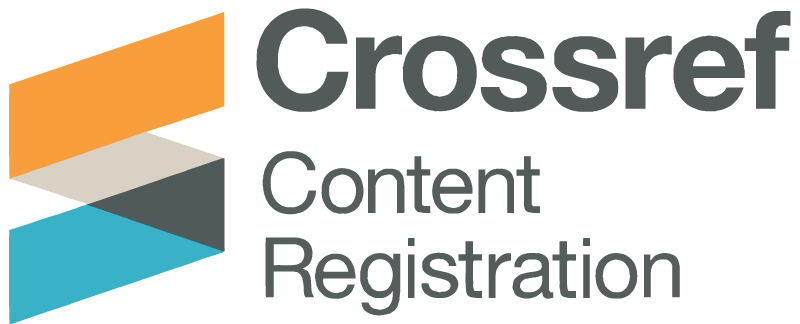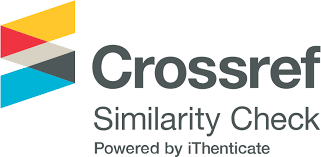Artificial Intelligence and Its Applications in Psychology
A Theoretical Study
DOI:
https://doi.org/10.59743/qj8f1b16Keywords:
Artificial Intelligence, Psychological Applications, Psychological Asse Psychological Assessment ssment, Psychological Practices.Abstract
This theoretical study addresses artificial intelligence (AI) and its applications in psychology, focusing on how these advanced technologies can enhance diagnosis and psychotherapy. Furthermore, it explores the benefits and limitations associated with the use of AI in psychological practices, offering a theoretical framework on how these technologies can integrate with traditional psychotherapy. The study relies on a comprehensive review of scientific literature and previous studies in this field to identify AI capabilities and the significant advancements it offers for psychology and psychotherapy environments. Additionally, the study analyzes relevant literature discussing AI's role in diagnosis and treatment, along with examining research gaps that may impact the successful implementation of these technologies. A set of recommendations is provided, including the necessity of integrating AI with human practices and emphasizing the importance of professional training in using these technologies. The study aims to provide a comprehensive understanding of the potential role of AI in improving psychotherapy while promoting the integration between technology and human therapists.
References
إبراهيم، (2021). التفاعل بين الذكاء الاصطناعي والنماذج النفسية التقليدية: نحو دمج فعال في العلاج النفسي. مجلة النماذج النفسية، 13(1)، 134-160.
جاسم، (2020). الآثار النفسية لاستخدام الذكاء الاصطناعي في العلاج النفسي: دراسة تحليلية. مجلة التحليل النفسي، 11(2)، 78-102.
خالد، ع. (2018). الذكاء الاصطناعي وتطبيقاته في مختلف المجالات. دار المعرفة.
السرحان، (2022). الذكاء الاصطناعي والعلاج النفسي: التكامل بين التقنية والعلاج البشري. مجلة التكنولوجيا النفسية، 9(2)، 156-178.
صالح، (2021). استخدام الذكاء الاصطناعي في علاج الاكتئاب: دراسة حالة. مجلة العلاجات النفسية، 10(4), 300-325.
صالح، ج. (2021). استخدام الذكاء الاصطناعي في تشخيص الاضطرابات النفسية. دورية الطب النفسي، 7(3)، 22-33.
الطويل، ع. (2015). علم النفس: أسس ونظريات. مكتبة الأنجلو المصرية.
عبد الرحمن، (2021). استخدام الذكاء الاصطناعي في تحليل البيانات النفسية. مجلة الدراسات النفسية، 15(2)، 123-145.
عبد الرحمن، س. (2021). تحليل البيانات النفسية باستخدام الذكاء الاصطناعي. دورية علم النفس التطبيقي، 13(2)، 101-118.
عبد الله، (2021). الذكاء الاصطناعي في التشخيص النفسي: التحديات الثقافية والفرص. مجلة علم النفس الثقافي، 12(4)، 98-120.
عبد الله، م. (2019). الذكاء الاصطناعي: المفاهيم والتطبيقات. دار النشر الجامعي.
العتيبي، (2023). استخدام الذكاء الاصطناعي في العلاج النفسي الرقمي: الفوائد والمخاطر. مجلة العلاج النفسي الرقمي، 14(3)، 220-245.
فوزي، (2023). القضايا الأخلاقية المرتبطة باستخدام الذكاء الاصطناعي في الطب النفسي. مجلة الأخلاقيات الطبية، 10(1)، 45-67.
فوزي، ه. (2023). القضايا الأخلاقية في استخدام الذكاء الاصطناعي في الطب النفسي. مجلة الأخلاقيات الطبية، 12(5)، 72-84.
المعري، (2022). الذكاء الاصطناعي واستخداماته في علم النفس العيادي: الواقع والتوقعات. مجلة علم النفس العيادي، 19(2), 180-210.
المعري، (2022). تأثير الذكاء الاصطناعي في العلاج النفسي. مجلة العلوم النفسية، 18(3)، 200-225.
المعري، ع. (2022). الذكاء الاصطناعي في مجال العلاج النفسي. مجلة الأبحاث النفسية، 15(1)، 35-48.
النجار، (2020). الذكاء الاصطناعي في تقييم الأداء النفسي والتربوي: إمكانيات وتحديات. مجلة القياس النفسي والتربوي، 8(3), 55-77.
النجار، م. (2020). الذكاء الاصطناعي وتطبيقاته في العلوم الاجتماعية. مجلة التكنولوجيا الحديثة، 8(4)، 45-62.
Baker, R. S., & Siemens, G. (2014). Educational data mining and learning analytics.
Barocas, S., & Selbst, A. D. (2016). Big data’s disparate impact.
Brown, A., & Green, T. D. (2021). The essentials of instructional design.
Burrell, J. (2016). How the machine ‘thinks’: Understanding opacity in machine learning algorithms.
Floridi, L., et al. (2018). AI4People—An ethical framework for a good AI society.
Mehrabi, N., et al. (2021). A survey on bias and fairness in machine learning.
Nguyen, T., et al. (2022). Applications of deep learning in psychological assessments.
Pennebaker, J. W., et al. (2015). The development and psychometric properties of LIWC2015.
van der Linden, W. J., & Glas, C. A. W. (2010). Elements of adaptive testing.
Wainer, H. (2000). Computerized adaptive testing: A primer. Lawrence Erlbaum Associates.
Downloads
Published
Issue
Section
License
Copyright (c) 2025 مجلة العلوم التربوية

This work is licensed under a Creative Commons Attribution 4.0 International License.










